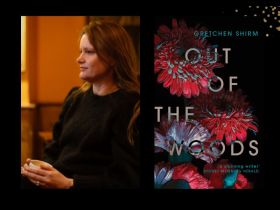Image: Shutterstock.com
A growth mindset determines a particular attitude towards failure. It describes an underlying belief about learning – that a person believes putting in the effort means they can achieve better results and develop new skills.
A fixed mindset is the opposite. It is when a person believes they are born with a particular skill level or ability, leading them to view the learning process in a more negative light, which can result in them becoming defensive or insecure when faced with a challenge.
Depending on your attitude to learning, and keeping in mind that a person is not one or the other throughout their entire life, how you react or view new challenges influences how much you learn from the process. Of course, teachers have an important role to play in developing a growth mindset in students. To find out how arts education and training fosters a positive learning attitude in students, ArtsHub spoke to several tutors and lecturers. It turns out the mindset we adopt and shape throughout our education has ongoing career benefits.
It’s about flexibility and empathy
‘One of the things when we audition for the acting courses and what we look for is, we might audition someone who is incredibly talented, but what we do in the audition is improvise and have play and create different circumstances just to see how flexible the student is. It is about being flexible and open,’ said Associate Professor Andrew Lewis Smith, Associate Dean Performance at the Western Australian Academy of Performing Arts (WAAPA).
‘Ten years after people graduate not everyone will be a famous actor, but what they have got from their training, which I love, is a curiosity about how others work and empathy for other people – [acting] is about being able to step into someone else’s shoes. And the two big qualities that we really try to foster are compassion and empathy. If you take that away, you can walk into another career later on if you wanted to where you would be really good at working in a team, collaborating, and being able to communicate effectively.’
Read: Why specialised training matters in the arts
You need the right environment
‘That is one of the things that we take very seriously. It is a safe environment to come along and learn. It is an intimate space and we make sure classes aren’t over enrolled, that tutors can have one-on-one time with participants, and that it is a safe environment for them to learn,’ Cassy Stephan, McGregor Co-ordinator at Artsworx.
‘I think if you create the right atmosphere in a class, where it is safe and creativity is happening, you create an opportunity for growth.’
Read: Filling the gaps in your CV
Teachers need to offer encouragement
‘While all of us are creative, and typically take joy in our creativity, putting yourself out there as a “writer” or “artist” can be a terribly difficult and confronting decision. One of the first questions I ask in my interviews is “Are you a writer?” and the only people who make it through to the course are the ones who answer in the affirmative, because they have already made that first, crucial step,’ said Stephen Sewell, Head of Writing for Performance at NIDA.
‘After that, it is a process – for me – of encouragement and support to defend the writers against the criticisms they experience and any niggling self-doubt. Artists, and creativity in general are too precious to be squandered by allowing people to be discouraged and disheartened by the negativity around them. What keeps artists going, however, is a strong sense of their own pain, and a need to relieve it. We don’t suffer for our art, we are artists because we suffer, and art is our way of surviving.
‘All NIDA staff are passionate proponents of the arts in general and our own particular arts – such as writing for me – and so a confidence and optimism pervades all our work and we hope encourages those same qualities in our students.’
Read: Advice for effective collaboration as an artist
Perfection is overrated
‘Our students here at AFTRS come from a diverse range of backgrounds with all kinds of life and educational experiences and so have very different attitudes and approaches to learning,’said Nell Greenwood, AFTRS Course Leader Masters. ‘AFTRS is the national screen and broadcast school and we have an impressive list of alumni so this can be daunting to some students who come here thinking they can’t afford to make mistakes.
‘From day one we instil in students the idea that learning is all about testing, practising and failing and at AFTRS we want you to fail hard and fail fast! We also really encourage students to find and work to their areas of passion and curiosity; this taps them into that vital sense of intrinsic motivation that will keep them asking questions, testing themselves, taking risks and learning throughout their careers.
‘Across the Bachelor and Masters programs we take a very hands-on, practice-based approach where students make something, throw it away, make it again and then make it again! This allows students to experience very tangibly for themselves the power of taking risks and failure and their own increasing capacity rather than worrying about the one “perfect” film.’
Read: AFTRS Open Day: Fast track your screen and broadcast career
Recognising failure as part of learning
‘Failure is a very important positive. You need to be able to fail to see where you are going. I think if you come into education with a too fixed mindset it is a bit of an inhibition. So being open to testing things out and potentially failing is very important – you succeed in a way by failing,’ said Professor Su Baker, the Director of the Victorian College of the Art.
‘At the Graduate level [tutors and lecturers] certainly have a mentoring and more of a facilitation role rather than the master/pupil type role. There is the sense that somebody has been down the journey before and they are guiding you through what is there – ultimately it is the student’s journey but the teacher has been on a version of that and so they are a guide.’
Read: Workshop, collaborate and listen
Motivation is key
‘Resilience in the face of challenge is one of the most pressing issues encountered by students and educators across the educational sector. How individuals rise to learning challenges depends very much on the extent to which they have been supported through such experiences, and the degree to which the rewards for persistence represent value, personally and/or professionally,’ said Dr Peter Keegan, Associate Dean Learning and Teaching and Associate Professor of Roman History, Faculty of Arts Macquarie University.
‘The role of the lecturer/tutor is key to student motivation. An authentic, realistic model for learning, especially when academic demands are significant, provides students with precisely the skills set best suited to active, independent learning.’
Read: Studying arts for the love of it
Learning comes from your own interests and passion
‘Our Honours is a very special year. It is an intensive course and is very much led by our students’ own interests and their own research questions. They work one-on-one with a supervisor, and they meet with that person each week. They also work with our history and theory department who support them through weekly meetings to develop their own written research around and led by the artistic work they do in the studio,’ said Adelaide Central School of Art Honours Program Coordinator, Sasha Grbich.
Read: How to pick the right art school for honours
Give students choice
‘We are conscious that people are looking to equip themselves to take on a future. It is about a deeper sense of vocation; not just a linear path,’ said Simon Cooper, Head of Studies at the National Art School.
‘In that first year, a lot of it is skills focused and to engage critical thinking. It can be very different to any experience a student might have had before. By the time they get to third year, there are as many courses as there are students. Simply, it is their own ideas – and critical thinking – that is directing their path of study, and that is incredibly exciting and liberating.’





